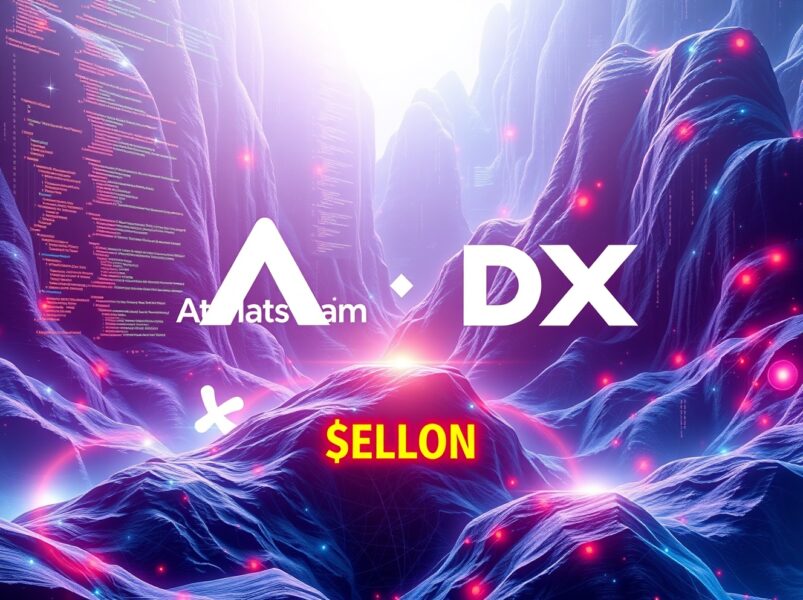Shocking Samourai Wallet Sentence: Co-Founder Gets 4 Years Prison

BitcoinWorld
Shocking Samourai Wallet Sentence: Co-Founder Gets 4 Years Prison
The cryptocurrency world received a sobering reality check as William Lonergan Hill, co-founder of the controversial Samourai Wallet, was sentenced to four years in federal prison. This landmark case sends shockwaves through the crypto privacy sector and raises crucial questions about regulatory boundaries.
What Exactly Happened with Samourai Wallet?
The U.S. District Court for the Southern District of New York delivered the sentence after Hill pleaded guilty to operating an unlicensed money transmitting business. Prosecutors presented compelling evidence that the Samourai Wallet service processed over $237 million in illicit funds. This case represents one of the most significant legal actions against cryptocurrency mixing services to date.
Authorities argued that Samourai Wallet knowingly facilitated money laundering activities while operating outside regulatory frameworks. The service allowed users to obscure transaction trails, making it difficult for law enforcement to track illegal financial activities.
Why Does This Samourai Wallet Case Matter?
This sentencing establishes a critical precedent for how regulators approach cryptocurrency privacy tools. The Samourai Wallet case demonstrates that:
- Cryptocurrency services must comply with money transmission laws
- Privacy features cannot shield illegal activities
- Regulators are actively monitoring crypto mixing services
The timing is particularly significant as it follows co-founder Keonne Rodriguez’s five-year sentence in August. Together, these cases show coordinated enforcement action against unregistered crypto services.
How Does This Affect Crypto Privacy Tools?
The Samourai Wallet verdict creates uncertainty for other privacy-focused cryptocurrency services. Many legitimate users value privacy features for personal security reasons. However, regulators clearly view mixing services as potential conduits for illegal activities.
This case may prompt other privacy tool developers to reconsider their compliance strategies. Some key implications include:
- Increased regulatory scrutiny on all mixing services
- Potential licensing requirements for privacy tools
- Greater transparency demands from service providers
What’s Next for Cryptocurrency Regulation?
The Samourai Wallet sentencing signals stronger enforcement of existing financial regulations in the crypto space. Regulators are sending a clear message that anti-money laundering laws apply equally to traditional and digital financial services.
This case likely represents just the beginning of increased regulatory attention on cryptocurrency privacy tools. Other mixing services may face similar legal challenges if they operate without proper licensing.
Key Takeaways from the Samourai Wallet Case
The four-year prison sentence for Samourai Wallet’s co-founder serves as a stark warning to the cryptocurrency industry. Compliance with financial regulations is no longer optional, even for privacy-focused services. This case establishes that:
- Cryptocurrency services must register as money transmitters
- Privacy cannot override anti-money laundering requirements
- Regulators are actively pursuing enforcement actions
The Samourai Wallet case will undoubtedly influence how developers build and regulators view cryptocurrency privacy tools moving forward.
Frequently Asked Questions
What is Samourai Wallet?
Samourai Wallet was a Bitcoin mixing service that allowed users to obscure their transaction history for enhanced privacy.
Why was the co-founder sentenced to prison?
William Lonergan Hill received a four-year prison sentence for operating an unlicensed money transmitting business and facilitating money laundering.
How much money was involved in the case?
Prosecutors stated that Samourai Wallet was used to launder $237 million in illicit funds through its mixing services.
What happened to the other co-founder?
Keonne Rodriguez, the other Samourai Wallet co-founder, received a five-year prison sentence on August 7th in a related case.
Are all cryptocurrency privacy tools illegal?
No, but they must comply with money transmission regulations and anti-money laundering requirements to operate legally.
What does this mean for other crypto mixing services?
This case sets a precedent that may lead to increased regulatory scrutiny and potential legal action against other unregistered mixing services.
Found this analysis insightful? Share this important cryptocurrency regulatory update with your network to help others understand the evolving legal landscape.
To learn more about the latest cryptocurrency regulatory trends, explore our article on key developments shaping Bitcoin compliance requirements and institutional adoption.
This post Shocking Samourai Wallet Sentence: Co-Founder Gets 4 Years Prison first appeared on BitcoinWorld.
You May Also Like

Atlassian’s Monumental DX Acquisition: Revolutionizing Developer Productivity for a Billion-Dollar Future

Solflare Launches Secure USDC Spending Card with Mastercard in UK and EEA
